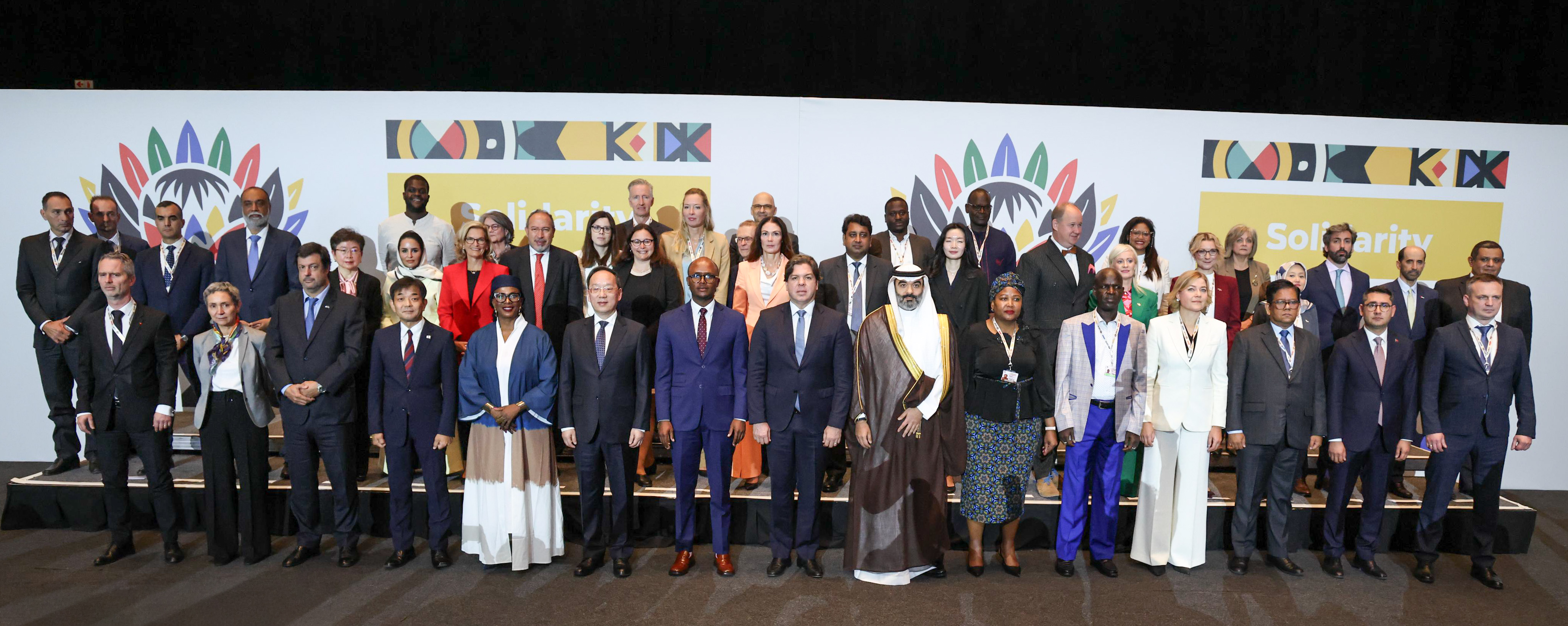The Digital Cooperation Organisation (DCO) announced the launch of its AI-REAL Toolkit at the G20 Digital Economy and Artificial Intelligence Ministers’ Meeting in Cape Town on Thursday, marking what it described as a major milestone in advancing responsible artificial intelligence.
The launch provides governments with a framework to assess readiness and guide adoption across sectors, with the aim of making AI development ethical, inclusive, and sustainable.
The DCO said the toolkit would help countries transform ambition into concrete, actionable steps, ensuring adoption that is fair, inclusive, and impactful for all.
The AI-REAL Toolkit, which stands for AI Readiness to Empowerment, Adoption, and Leadership, was also presented this week at the Pak–Kuwait Tech Conference 2025 in Kuwait, where it was showcased as a pioneering DCO initiative to support member states in advancing responsible AI adoption.
The toolkit is one of the first multilateral frameworks of its kind, designed to translate AI pillars, dimensions, and key performance indicators into practice.
It equips policymakers, regulators, and stakeholders with practical tools to assess readiness, identify gaps, and shape national strategies, while ensuring that artificial intelligence is deployed responsibly, ethically, inclusively, and sustainably.
DCO Secretary-General Deemah AlYahya said “it has become essential to treat digital infrastructure and artificial intelligence as global public goods, built on inclusion and fairness.”
She added “the digital and AI divides are not just numbers and statistics; they represent lost opportunities for millions of people.”
“Our message is clear, we must move from ambition to execution, and from promises to practical solutions,” she said.
“The launch of the AI-REAL Toolkit reflects the organisation’s commitment to transforming aspirations into actionable pathways, ensuring that every nation and every individual has a place in the future of the global digital economy,” she added.
The AI-REAL Toolkit offers a diagnostic assessment across five strategic pillars, 17 dimensions, and 39 key performance indicators.
These include strategy, policies and regulations, research and development, data and infrastructure, investment, and talent and skills.
The framework was developed by benchmarking both leading and emerging AI countries to extract global best practices.
The toolkit has been piloted in selected DCO member states, including Cyprus, in order to validate its practical applicability, strategic relevance, and effectiveness in guiding national AI readiness and policy development, while also refining its frameworks for broader implementation.
According to the DCO, while global indexes exist to rank countries on AI readiness, the AI-REAL Toolkit goes further.
It not only measures where a nation stands, but also helps it move forward, giving governments a roadmap from readiness to adoption.
The organisation said this ensures that artificial intelligence is developed in ways that are ethical, inclusive, sustainable, and beneficial for people.
The announcement aligns with the DCO’s wider objectives, equipping its 16 member states with resources to navigate AI responsibly.
The organisation highlighted external forecasts underlining the significance of AI.
According to Goldman Sachs, generative AI could raise global GDP by around 7 per cent over the next decade, with productivity gains of about 1.5 percentage points, making AI one of the most important drivers of economic growth in this generation.
Meanwhile, Statista has forecast that the AI market will expand from US$244 billion in 2025 to more than US$1 trillion by 2031, underscoring both the opportunities and the urgency of responsible adoption.
The launch of the AI-REAL Toolkit follows the unveiling of the AI Ethics Evaluator by the DCO in July 2025 during the AI for Good Summit in Geneva.
That initiative, presented to member states as the first-of-its-kind benchmark for ethical AI governance, was described as a key milestone in promoting responsible AI.
While the AI Ethics Evaluator provided progress in one critical dimension of ethical governance, the AI-REAL Toolkit goes further by offering an integrated framework to help countries overcome barriers across readiness, empowerment, and leadership.
Founded in 2020, the Digital Cooperation Organization describes itself as the world’s first standalone international intergovernmental organisation dedicated to accelerating the growth of an inclusive and sustainable digital economy.
It brings together the ministries of communications and information technology of its 16 member states, including Cyprus, representing nearly US$3.5 trillion in GDP and a combined market of more than 800 million people, with over 70 per cent under the age of 35.






Click here to change your cookie preferences